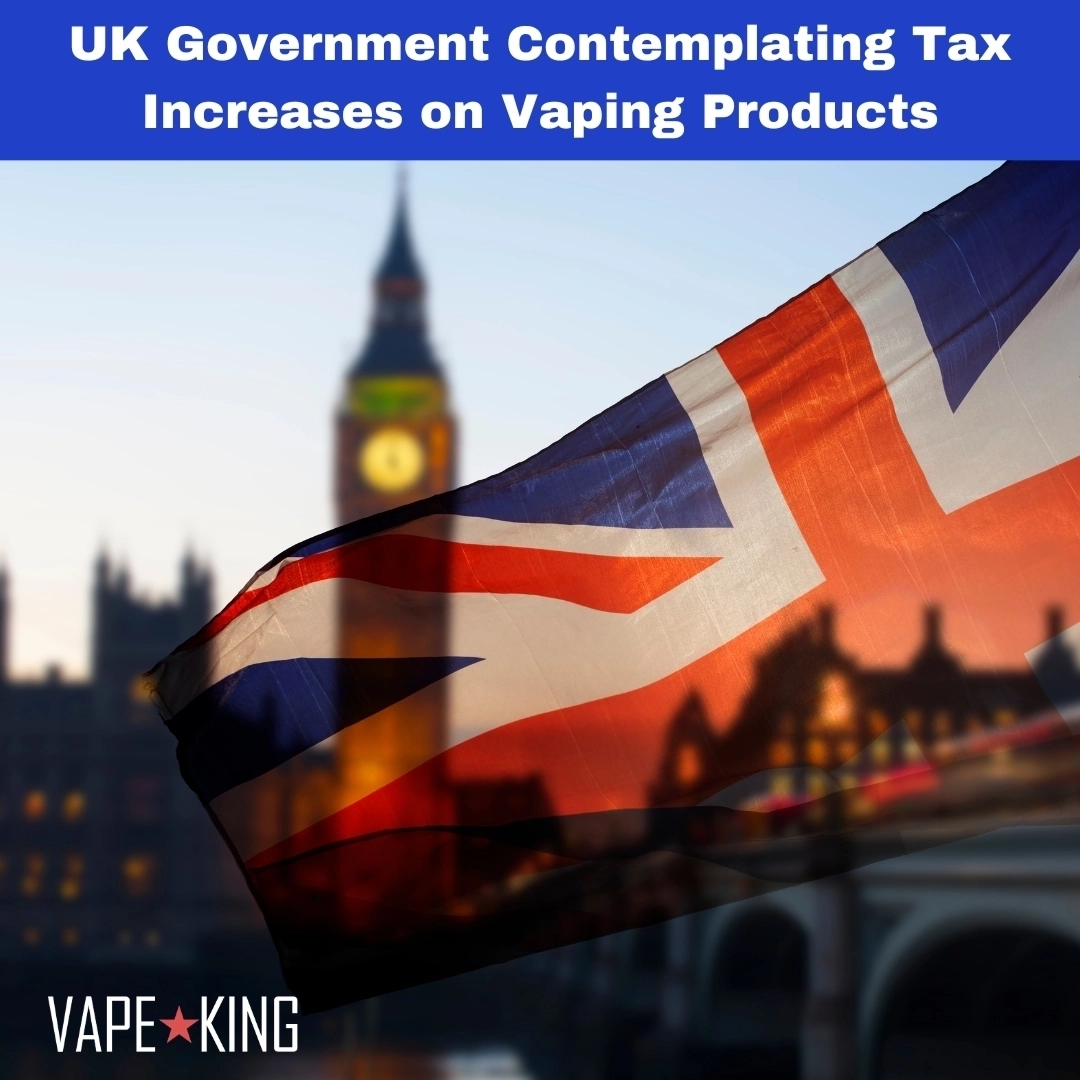UK Government Contemplating Tax Increases on Vaping Products

The UK government is contemplating introducing a new tax on vapes in the upcoming Budget.
Presently, vaping products are subject to VAT, unlike tobacco, which doesn't have a dedicated levy.
There's also a possibility of an increase in tobacco duty to ensure that vaping remains economically advantageous.
Ministers are concerned that the relatively low cost of vaping makes these products more accessible to young people and non-smokers.
The UK government first mentioned considering a vaping levy during November's King's Speech, noting a "significant differential" with tobacco tax.
As per reports from the Times, the proposed new duty would target the liquid in vapes, with higher tax rates for products containing more nicotine.
The Treasury's analysis suggests that the new vaping tax, coupled with the rise in tobacco duty, could eventually generate around £500m (approximately R9.6 billion) annually.
Last year, the separate tax on tobacco products was raised by 2% more than inflation as part of the Autumn Statement. Official economic forecasts anticipate tobacco duty revenue to reach £10.4bn (about R200 billion) this year, largely driven by the increased rate.
Currently, vaping products and non-tobacco nicotine are taxed at 20% VAT, while e-cigarettes regulated as medicines face a reduced 5% rate.
Under the UK government's "swap to stop" initiative in England, traditional smokers can receive free vaping "starter packs" to aid in quitting tobacco.
The NHS advocates nicotine vaping as a means for adult smokers to quit tobacco, acknowledging it as "substantially less harmful," albeit not entirely benign.
Several European countries impose e-cigarette taxes, with the European Commission planning to establish a minimum level across the EU.
Concerns about the 'black market':
The UK Vaping Industry Association, representing vape manufacturers, expressed apprehension that a new tax would unfairly penalize individuals who switched from tobacco.
John Dunne, the association's director general, emphasized that such a tax would diminish accessibility to vaping, particularly for those residing in economically disadvantaged areas with high smoking rates.
He further contended that this measure could exacerbate the proliferation of the black market, which is already teetering on the brink of being unmanageable.
These concerns arise following recent announcements of plans to implement a nationwide ban on disposable vapes in the UK, along with regulations on flavor variants and packaging.
UK government ministers, tasked with enacting the ban in England, aim to enact the necessary legislation before the upcoming election.
Upon confirmation of the timeline, the ban is anticipated to take effect in early 2025, allowing retailers a six-month transition period to comply with the regulations.
Budget alert:
The UK government also intends to augment fines for retailers found selling vapes to individuals under 18 years old, an act deemed unlawful.
In the forthcoming Budget scheduled for next week, the government will reveal its fiscal and expenditure strategies for the forthcoming year, set against the backdrop of sluggish economic expansion.
Chancellor Jeremy Hunt has hinted at his desire to reduce taxes, potentially in what might be the final Budget preceding a general election.
However, the Institute of Fiscal Studies, a renowned think-tank, has cautioned that the UK's financial situation is precarious for implementing such measures.
The institute pointed out that during the Autumn Statement, the chancellor was barely meeting the government's criterion that official projections should demonstrate a decline in debt relative to national income over the next five years.
No posts found
Write a reviewRecent posts
- WHO Issues Warning Regarding Falsely Labelled Propylene Glycol: A Caution for E-Liquid Manufacturers
- Salvaging a Wet Vape: Tips for Reviving Your Device After Water Exposure
- Discover the Top 10 Disposable Vapes in South Africa
- Unveiling Australia's Flawed Vaping Policies: A Catalyst for Illicit Markets

